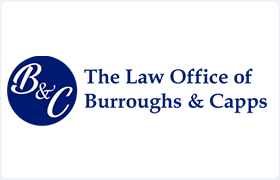 Knox County, TN Divorce & Family Law Lawyers
Knox County, TN Divorce & Family Law Lawyers
Sponsored Law Firm
-
 x
x

Click For More Info:
-
The Law Office of Burroughs & Capps
9111 Cross Park Drive Suite E-100 Knoxville, TN 37923» view mapDivorce & Family Law We've Successfully Helped Thousands
At the Law Office of Burroughs & Capps, you will receive the quality representation and personal attention that you and your claim deserve.
800-682-8380
Sponsored Lawyers
1-10 of 24 matches
Accident & Injury, Social Security, Estate, Divorce & Family Law, Criminal
L. ERIC EBBERT is the owner of the Ebbert Law Firm, which he created in 2020. He is licensed in both Tennessee and Florida. He practices in the areas of Labor & Employment law - Management, business litigation, and health care liability. His emphasis on Labor & Employment law includes counseling and defending employers in state and federal courts and before government agencies under Title VII, the Americans with Disabilities Act, Age Discrimination in Employment Act, Family and Medical Leave Act, Fair Labor Standards Act, National Labor Relations Act, and state employment laws; conducting high-level investigations; management training; and employment contracts. His litigation practice also includes real property, breach of contract, tort liability, products liability, and health care liability, as well as the full spectrum of business-to-business litigation. Eric has tried more than 30 cases, representing regional, national, and multi-national companies, through all stages of litigation and appeals. Eric received his Bachelor of Science degree in Accounting from Brigham Young University and his law degree from the University of Tennessee College of Law. He is admitted to practice in the United States District Court for the Eastern, Middle and Western Districts of Tennessee, and the Middle and Southern Districts of Florida, and the U.S. Tax Court. He is listed in The Best Lawyers in America® in the field of Litigation/Labor & Employment. Since 2007 Eric has served as a member of the District Investigatory Committee of the Tennessee Board of Law Examiners. He is a member of the Tennessee and Knoxville Bar Associations, a member of SHRM, and a member of the Board of the Senior Citizens Home Assistance Service, Inc. He devotes his personal time to family and church.
(more)Accident & Injury, Divorce & Family Law, Business
Bryan was born and raised in Knoxville, and he has proudly worked on behalf of injured plaintiffs his entire adult life. At just age 19, while attending Carson-Newman University, Bryan was hired as a runner and copy clerk with one of Tennessee’s top plaintiff personal injury law firms. Upon graduating Carson-Newman with a degree in business and economics, he was promoted to be firm administrator, and he continued to manage the firm while obtaining M.B.A. and law degrees from the University of Tennessee. Since graduating law school in 1999, Bryan has worked solely on behalf of injured Tennesseans handling nearly every type of plaintiff personal injury case. He has successfully litigated personal injury cases in both state and federal courts throughout Tennessee, in Ohio, Kentucky, and Georgia and before the Tennessee Court of Appeals, Tennessee Supreme Court and United States Court of Appeals for the Sixth Circuit. Bryan’s commitment to highly competent, successful – and ethical – representation of injured clients has been widely recognized by his clients and his peers. Bryan received AVVO’s highest client/peer rating of 10/10. Bryan trained as an ombudsman with the national program for U.S. veterans – Employer Support of the Guard and Reserve (ESGR). He was honored to work with ESGR to help active-duty and retiring veterans successfully return to their pre-deployment jobs and career paths. In 2012, Bryan was elected and served as president of the Tennessee Trial Lawyers Association (TTLA) – the state’s premier organization of plaintiff trial attorneys. Then in 2018, Bryan was elected as president of the Tennessee Chapter of the American Board of Trial Advocates (ABOTA) – a national organization of trial attorneys committed to preserving the 7th Amendment right to trial by jury and ethics in the practice of law. In 2018, Bryan was also selected as a member of The National Trial Lawyers (NTL) Top 100. NTL is an organization of the top 100 attorneys in each state who have a reputation and track record of exemplary ethics, litigation skills, and leadership. Bryan is also proud to be a dedicated husband and father of two daughters. Bryan is very fortunate that his wife and daughters share his interests in traveling, boating, music, hiking/camping and gardening. He and his family can very often be found in the Smoky Mountains, on Norris Lake or traveling to attend a concert.
(more)


 Bryan Capps Knoxville, TN
Bryan Capps Knoxville, TN Practice AreasExpertise
Practice AreasExpertise



